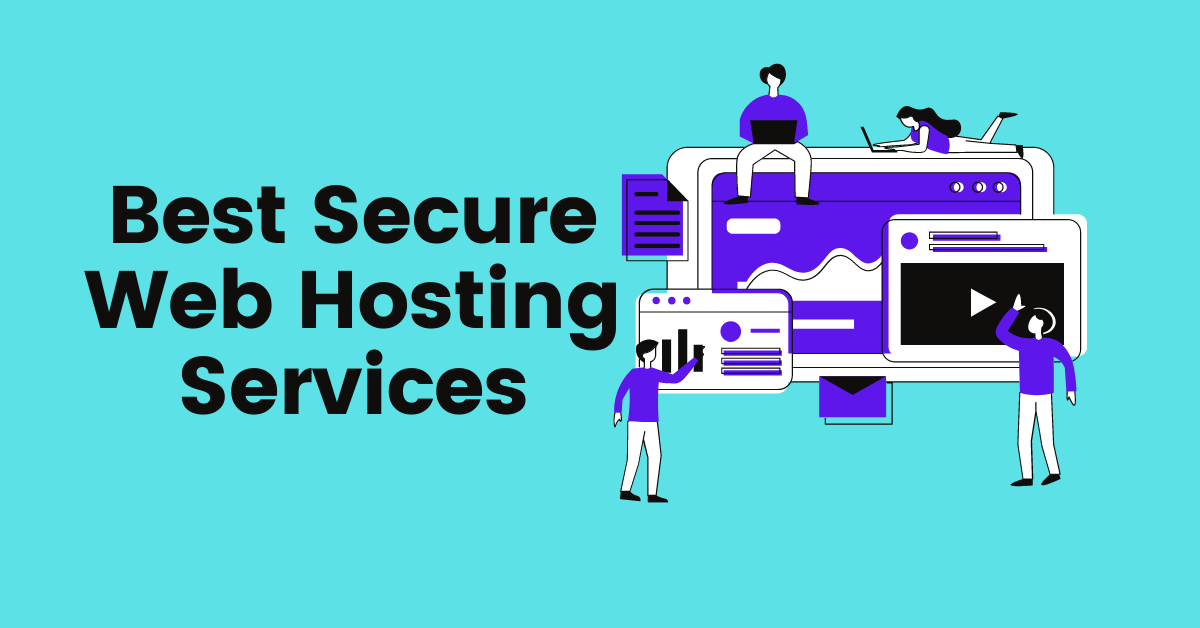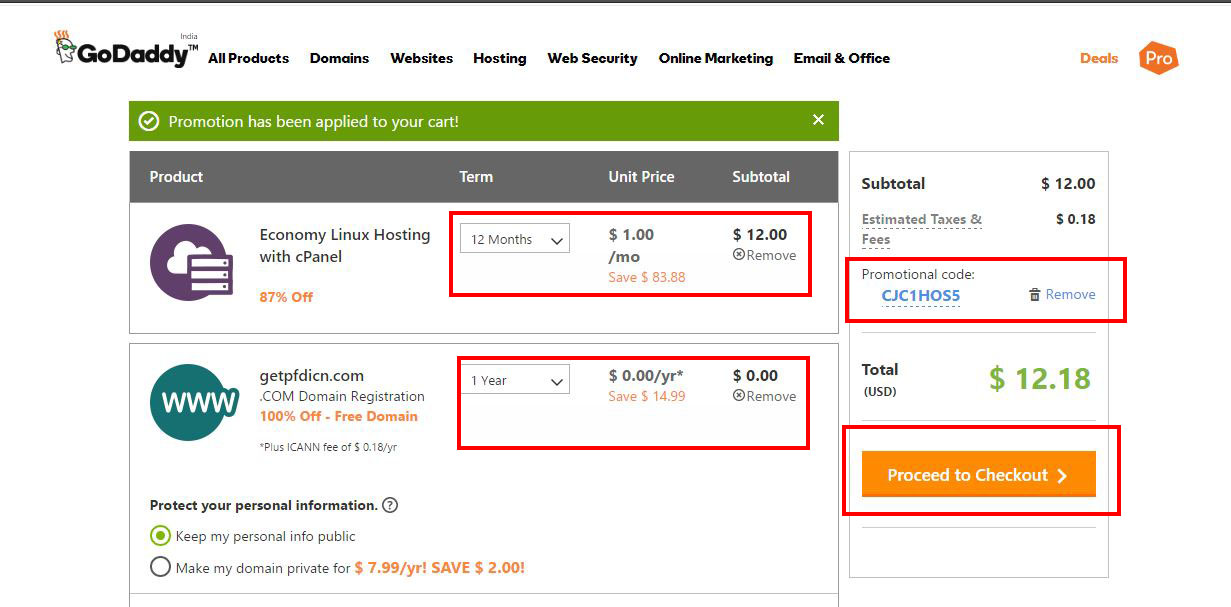Secure web hosting is paramount for businesses and individuals alike, ensuring the safety and integrity of sensitive data. In a world increasingly reliant on digital interactions, the consequences of a compromised website can be devastating, impacting reputation, finances, and even legal compliance. From simple websites to complex e-commerce platforms, the need for robust security measures is undeniable.
This guide explores the intricacies of secure web hosting, delving into essential security features, data encryption practices, and best practices for safeguarding your online presence. We’ll examine the various threats faced by websites and discuss effective mitigation strategies to ensure your website remains resilient and secure.
Data Encryption and Privacy
Data encryption is a crucial aspect of secure web hosting, ensuring the confidentiality and integrity of sensitive information. Encryption transforms data into an unreadable format, making it inaccessible to unauthorized individuals.
Encryption and Data Protection
Encryption plays a vital role in protecting sensitive data stored and transmitted through a web hosting environment. When data is encrypted, it is transformed into an unreadable code, known as ciphertext. Only individuals with the appropriate decryption key can access the original data. This process effectively safeguards sensitive information, such as customer data, financial records, and intellectual property, from unauthorized access.
Best Practices for Data Privacy
- Use Strong Encryption Protocols: Employ robust encryption algorithms, such as Advanced Encryption Standard (AES) with a 256-bit key, to ensure the highest level of security.
- Implement Secure Socket Layer (SSL) Certificates: SSL certificates establish encrypted connections between web servers and browsers, protecting data transmitted during website interactions.
- Regularly Update Software and Security Patches: Keeping software and security patches up-to-date helps mitigate vulnerabilities that could compromise data security.
- Limit Access to Sensitive Data: Implement role-based access control measures to restrict access to sensitive data only to authorized personnel.
- Regularly Backup Data: Implement regular data backups to ensure data recovery in case of data loss or breaches.
- Comply with Data Privacy Regulations: Adhere to relevant data privacy regulations, such as the General Data Protection Regulation (GDPR) and the California Consumer Privacy Act (CCPA), to ensure responsible data handling practices.
Choosing a Secure Web Hosting Provider
Choosing the right web hosting provider is crucial for any website, but it’s especially important for those handling sensitive data. A secure web hosting provider can help protect your website and your users’ information from cyber threats.
Factors to Consider When Choosing a Secure Web Hosting Provider
Selecting a secure web hosting provider involves evaluating various factors to ensure the safety and integrity of your website and data.
- Security Features: Look for providers that offer a comprehensive suite of security features, including firewalls, intrusion detection systems, malware scanning, and regular security updates. SSL certificates are essential for encrypting data transmitted between your website and visitors, ensuring secure communication.
- Data Backup and Recovery: Reliable data backup and recovery solutions are crucial in case of data loss or system failures. Ensure your provider offers regular backups and efficient recovery procedures.
- Server Security: The physical security of the servers hosting your website is essential. Choose a provider with secure data centers that have robust physical security measures, including surveillance, access control, and environmental monitoring.
- Customer Support: Prompt and knowledgeable customer support is essential for addressing security concerns or technical issues. Look for providers that offer 24/7 support and a proven track record of responsiveness.
- Compliance and Certifications: Consider providers that comply with relevant industry standards and regulations, such as PCI DSS for payment processing or HIPAA for healthcare data. Certifications like ISO 27001 demonstrate a commitment to information security best practices.
Comparing Hosting Providers Based on Security Features and Pricing, Secure web hosting
- Shared Hosting: This budget-friendly option offers basic security features but shares server resources with other websites, potentially impacting performance and security.
- VPS Hosting: VPS (Virtual Private Server) offers more resources and security than shared hosting, as it provides a dedicated portion of a server. VPS hosting provides better control over security settings and offers greater isolation from other websites.
- Dedicated Hosting: This option provides an entire server dedicated to your website, offering the highest level of security and performance. However, dedicated hosting is also the most expensive option.
- Cloud Hosting: Cloud hosting distributes your website across multiple servers, providing scalability, redundancy, and high availability. Many cloud providers offer robust security features and compliance certifications.
Reputable Secure Web Hosting Providers
Numerous reputable web hosting providers offer robust security features. Here are a few examples:
- HostGator: HostGator offers a wide range of hosting plans, including shared, VPS, and dedicated hosting. They have a strong focus on security and offer features like SiteLock malware protection and daily backups.
- Bluehost: Bluehost is another popular choice, providing shared, VPS, and dedicated hosting plans. They offer features like a free SSL certificate, spam protection, and a website security scanner.
- GoDaddy: GoDaddy is a well-known provider offering various hosting options, including shared, VPS, and cloud hosting. They offer security features like website backup, malware scanning, and DDoS protection.
- SiteGround: SiteGround is known for its reliable performance and security features. They offer a free SSL certificate, daily backups, and a website security scanner.
Security Best Practices for Website Owners: Secure Web Hosting

Even with the most secure web hosting, your website’s security relies heavily on the practices you implement. It’s crucial to take proactive steps to protect your website and its data from threats.
Strong Passwords and Two-Factor Authentication
Strong passwords are the first line of defense against unauthorized access. A strong password should be at least 12 characters long, include a mix of uppercase and lowercase letters, numbers, and symbols, and should not be easily guessable. Additionally, using two-factor authentication (2FA) adds an extra layer of security by requiring you to provide a second piece of information, typically a code sent to your phone or email, in addition to your password.
Regular Software and Plugin Updates
Software and plugins are constantly being updated to address vulnerabilities and security issues. It’s essential to keep your website’s software and plugins up-to-date to ensure your website is protected against the latest threats. Many vulnerabilities are patched with these updates.
Security Threats and Mitigation Strategies
Even with secure web hosting, websites are not immune to security threats. Understanding these threats and implementing appropriate mitigation strategies is crucial to safeguarding your website and its data.
Common Security Threats
Various security threats can compromise the integrity and security of websites hosted on secure servers.
- Malware Infections: Malicious software can be injected into a website, leading to data breaches, website defacement, and redirection to phishing websites.
- SQL Injection Attacks: These attacks exploit vulnerabilities in web applications to gain unauthorized access to databases, potentially compromising sensitive user information.
- Cross-Site Scripting (XSS) Attacks: XSS attacks allow attackers to inject malicious scripts into a website, potentially stealing user credentials, manipulating website content, or launching further attacks.
- Denial-of-Service (DoS) Attacks: These attacks overwhelm a website with traffic, making it inaccessible to legitimate users.
- Brute-Force Attacks: These attacks attempt to guess passwords by trying multiple combinations, potentially compromising user accounts.
- Zero-Day Exploits: These attacks exploit vulnerabilities in software before patches are available, making them particularly dangerous.
- Phishing Attacks: These attacks deceive users into providing sensitive information, such as login credentials or financial details, through fake websites or emails.
- Man-in-the-Middle (MitM) Attacks: These attacks intercept communication between a user and a website, potentially stealing data or manipulating website content.
Mitigation Strategies
Implementing robust security measures can significantly reduce the risk of these threats.
- Regular Software Updates: Keeping software up to date is essential to patch vulnerabilities and prevent attacks.
- Strong Passwords and Two-Factor Authentication: Using strong passwords and enabling two-factor authentication makes it more difficult for attackers to gain unauthorized access to accounts.
- Web Application Firewalls (WAFs): WAFs act as a barrier between your website and potential attackers, filtering malicious traffic and preventing attacks.
- Regular Security Audits: Regularly auditing your website for vulnerabilities can help identify and address security issues before they are exploited.
- Data Encryption: Encrypting sensitive data, such as user information and financial details, protects it from unauthorized access.
- Secure Coding Practices: Implementing secure coding practices helps minimize vulnerabilities in web applications.
- Backups and Disaster Recovery Plans: Regularly backing up your website data and having a disaster recovery plan in place can help you recover from attacks and minimize data loss.
- Security Awareness Training: Educating users about common security threats and best practices can help prevent them from falling victim to phishing attacks or other social engineering tactics.
Threat Impact and Mitigation Methods
| Security Threat | Potential Impact | Mitigation Methods |
|---|---|---|
| Malware Infections | Data breaches, website defacement, redirection to phishing websites | Regular software updates, antivirus software, web application firewalls (WAFs), secure coding practices |
| SQL Injection Attacks | Unauthorized access to databases, data theft, website manipulation | Input validation, parameterized queries, secure coding practices, web application firewalls (WAFs) |
| Cross-Site Scripting (XSS) Attacks | User credential theft, website content manipulation, further attacks | Input sanitization, output encoding, web application firewalls (WAFs), secure coding practices |
| Denial-of-Service (DoS) Attacks | Website downtime, loss of revenue, reputational damage | Load balancing, DDoS protection, network security measures |
| Brute-Force Attacks | Compromised user accounts, data theft, unauthorized access | Strong passwords, two-factor authentication, account lockout policies, rate limiting |
| Zero-Day Exploits | Data breaches, website vulnerabilities, system compromise | Regular software updates, vulnerability scanning, security monitoring |
| Phishing Attacks | User credential theft, financial fraud, data breaches | Security awareness training, strong passwords, two-factor authentication, email filtering |
| Man-in-the-Middle (MitM) Attacks | Data interception, website content manipulation, credential theft | HTTPS encryption, secure communication protocols, VPNs |
Summary
Choosing the right secure web hosting provider is crucial for establishing a strong online foundation. By implementing best practices and utilizing advanced security features, you can mitigate risks, protect your data, and maintain a secure online environment. The future of web hosting is undoubtedly intertwined with robust security measures, and staying informed about emerging trends and technologies is vital for navigating the ever-evolving landscape of cyber threats.
Secure web hosting is essential for any website, ensuring data protection and a smooth user experience. While security features can sometimes come at a premium, there are affordable options available, like godaddy cheap hosting , which offers a balance between cost-effectiveness and reliable security measures.
Choosing the right hosting plan can help you strike the right balance between affordability and security for your website.




